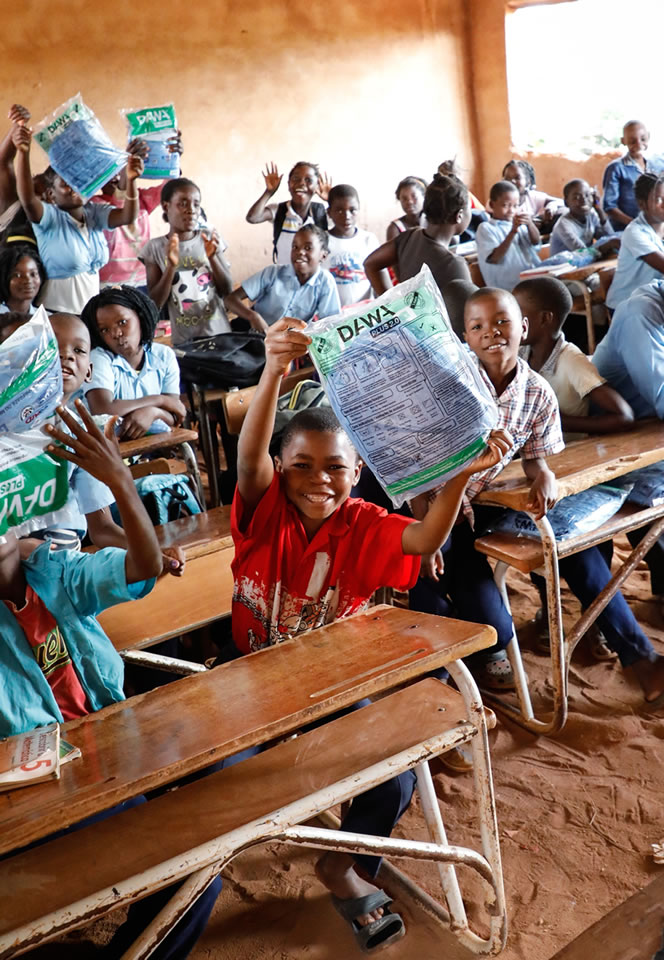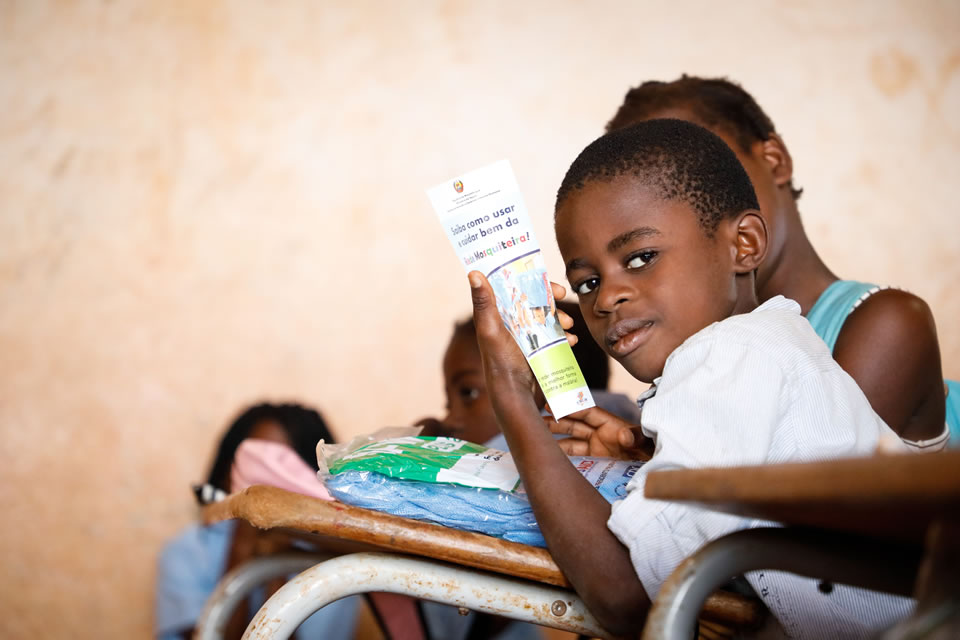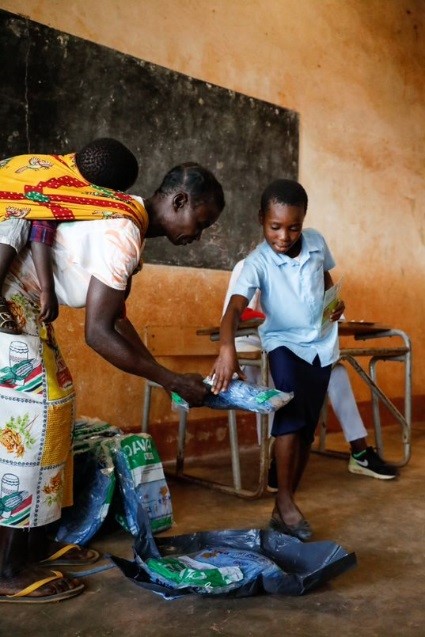Determining Success through School Councils
The President’s Malaria Initiative (PMI) conducted a pilot distribution of long-lasting insecticide-treated nets in primary schools in Namarroi, a district of Zambézia province in May 2018. The objective of the pilot campaign was to inform the Mozambique National Malaria Control Program on the viability of including annual school distributions as part of its national strategy to support access and ownership of long-lasting insecticide-treated nets through continuous distribution between the national mass campaigns occurring every four years.
As part of this pilot, 26,690 long-lasting insecticide-treated nets were successfully distributed to students from 134 primary schools. School Councils fully participated in the distribution and ensured its success, with 93.3 percent of the student population reached.
Continuous LLIN Access Through Schools
In order to maintain universal long-lasting insecticide-treated net coverage and ensure protection of communities against malaria, the World Health Organization recommends that countries apply a combination of free mass distributions and continuous distributions through multiple channels, in particular through antenatal and immunization services. Mass campaigns are a cost-effective way to rapidly achieve high and equitable coverage, but coverage gaps start to appear almost immediately post-campaign through net deterioration, loss of nets, and population growth, requiring complementary continuous distribution channels. Continuous distribution channels, such as school-based or community-based bed net distributions should be functional before, during, and after the mass distribution campaigns to avoid any gap in universal access to long-lasting insecticide-treated nets.
Fast Facts:
- 26,690 pupils in grades first, third, and fifth grade reached.
- 134 Primary Schools in Namarroi District.
- Achieved 93.3 percent coverage of students.
In line with these guidelines, the Mozambique Ministry of Health therefore decided to conduct a long-lasting insecticide-treated net school distribution pilot in Namarroi district, Zambézia on May 22, 2018. This pilot campaign was supported by the following PMI-supported projects: Global Health Supply Chain-Procurement and Supply Management, VectorWorks, Communication for Improved Health Outcomes and Integrated Malaria Program.
Taking into account enrollment and dropout rates in primary school, this pilot anticipated that students in three primary school grades would need to receive one long-lasting insecticide-treated net per year in order to maintain ownership and access until the 2020 mass campaign. The campaign was preceded by a feasibility study, macro and microplanning, teacher cascade training and prepositioning nets at schools.
The district of Namarroi was selected because of its representative school completion rate, the fact that it does not receive Indoor Residual Spraying, accessibility, population density, school density and district engagement.
Enrolling School Councils for Success
Per Ministry of Education recommendations, all primary schools in Mozambique create school councils that provide community support for national education policies. School councils are composed of one teacher, the school director, one student, one parent or guardian and one school staff member. Membership is also frequently extended to other influential community leaders.
While community involvement in management of health in remote areas is key toward providing improved health care for the community, one important finding was that involvement of school councils turned out to be a key element of the pilot project. The National Malaria Control Program involved the school councils at the beginning of the process to facilitate communication with the entire community and the pupils, and promote a better understanding of long-lasting insecticide-treated net school distribution goals and process.
During and after the distribution of bed nets, all stakeholders recognized the important role played by the councils in helping ensure that the goals of continuous access are achieved within the community: “The school councils have helped the community understand that these nets are for students and not for the entire community. This will complement the nets that the community received last year during the mass campaign” said the director of Complete Primary School in Muassapo.
The School Councils also helped ensure that the distribution would go according to plan: “the campaign was peaceful and orderly thanks to school councils who helped to explain to students and the community who should get the nets and who shouldn´t” said the administrator of the Namarroi district during the debriefing at the district level.
The last phase of the pilot campaign will take place in 2019, when long-lasting insecticide-treated nets will once again be distributed to first, third and fifth grade students in Namarroi district primary schools. A final assessment, including cost-efficiency, will be conducted with the objective of including school-based long-lasting insecticide-treated net distribution as part of the national continuous distribution strategy to prevent malaria.



